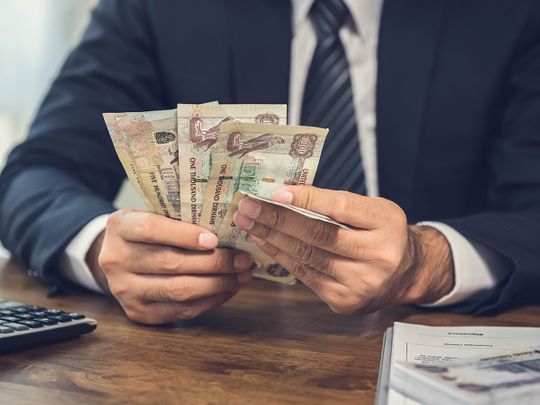
Dubai: Contrary to popular myth, the process of building an investment portfolio needn’t begin when you have a lot of money. Rather, it can begin with a few thousand – or even a few hundred – dirhams.
Whether you’re planning to invest a little or quite a lot, in safe bets or high-risk investments, it’s vital to get started. But what’s the best way to get started?
In order to set aside a certain amount in savings every month and reap the rewards in the long run, automation will help. Mobile applications that make saving effortless are those that round up your purchases and other transactions to the nearest amount and put aside the savings.
Short of using these apps, check with your bank about its own apps and other ways you might automatically transfer funds from non-savings accounts to those better suited to savings and investment.
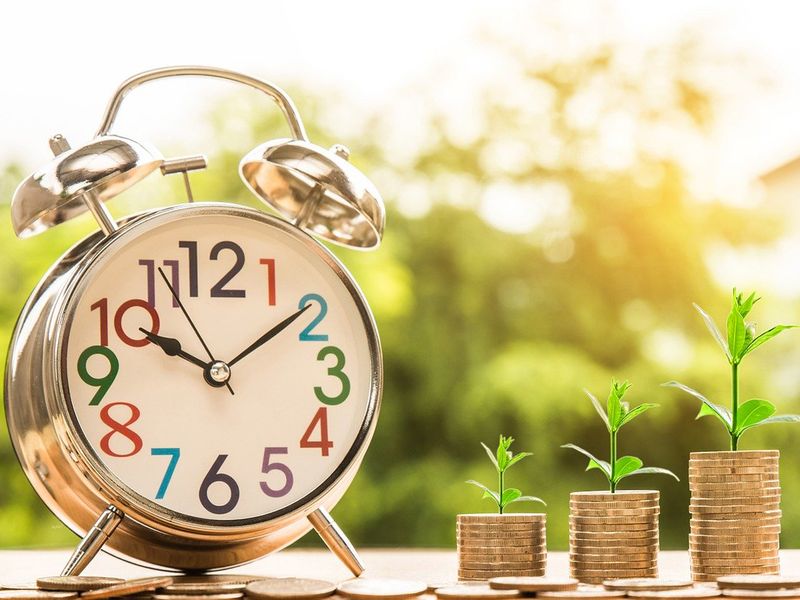
High-interest credit cards can carry rates of 20 per cent or more, and some loans have interest rates over 10 per cent. Those rates are higher than the average annual earnings of 9 per cent or so that stock markets have returned over time.
If you’re carrying a lot of high-interest debt, it makes more sense to pay off at least some of it before making investments.
It’s vital to minimise your fees
No matter your net worth, it’s essential to minimise your investment fees, whether on a savings account, a mutual fund, or any other financial product.
That’s especially true when you’re investing on a budget because fixed fees will take a more significant portion of your savings.
While a Dh100 annual fee on a Dh1 million account is insignificant, a Dh100 fee on a Dh5,000 account is a big bite of your hard-earned money. So prudentially choose the costs associated with where you put your money, especially if you’re investing on a budget, experts reiterate.
Investment experts also often caution against not weighing likely returns on your investments against the level of risk you’re comfortable with taking, and that’s suitable to your age. As a general rule, your portfolio should become steadily less risky as you approach retirement.
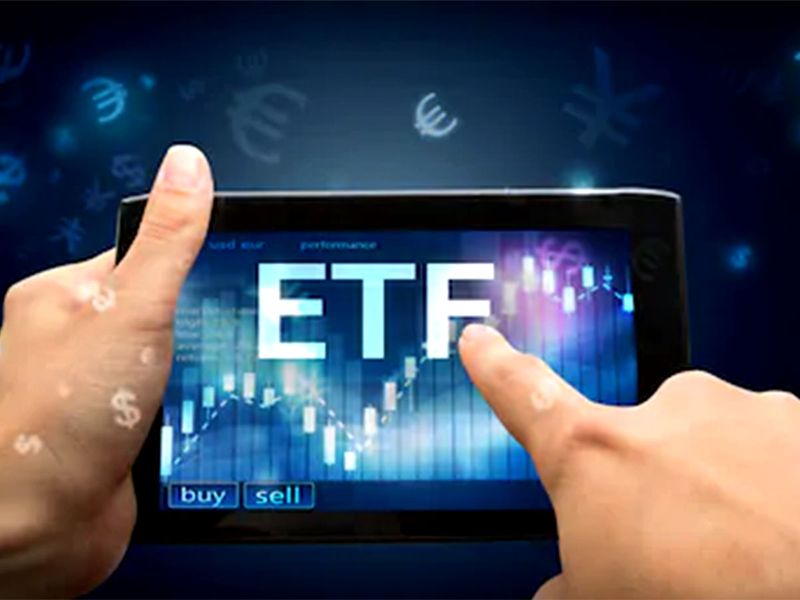
Where do I invest if I have Dh100 or Dh500 to invest?
Setting aside merely Dh100 or at the most Dh500 can reap you more benefits than you might think in starting an investment portfolio.
• Invest in bonds or deposit schemes offered by banks or lenders
If you prefer to play it safe, park your sum in a deposit from a bank or other lender or use it to buy bonds. The growth potential with both options is limited, but the risks are virtually zero. It’s a way to earn a little on your money until your nest egg grows to the point where other options are available.
For example, with National Bonds, the UAE Sharia-compliant savings and investment company owned by the Investment Corporation of Dubai (the Dubai Government’s investment arm), there are multiple low-cost options available.
National Bonds offers Saving Certificates that allows you to start saving with as little as Dh100. With Saving Certificates being available in units of Dh10, you can choose to alter your saving amounts as needed, either by increasing it to Dh150 a month, or holding back a little with Dh120 the next.
For those who are comfortable with a little more risk, many choices are available, even for small investors, which promise greater returns than deposits or bonds.
• Another option for starting small is an exchange-traded fund (ETF)
Another option for starting small is an exchange-traded fund (ETF), most of which require no minimum investment.
Unlike most mutual funds, ETFs typically feature a passive management structure, which translates to lower ongoing costs. However, among other drawbacks to ETFs, you must pay fees on their transactions.
To lessen these charges, consider using a discount broker that does not charge a commission – or plan to invest less often, perhaps investing larger amounts quarterly rather than making small monthly purchases.
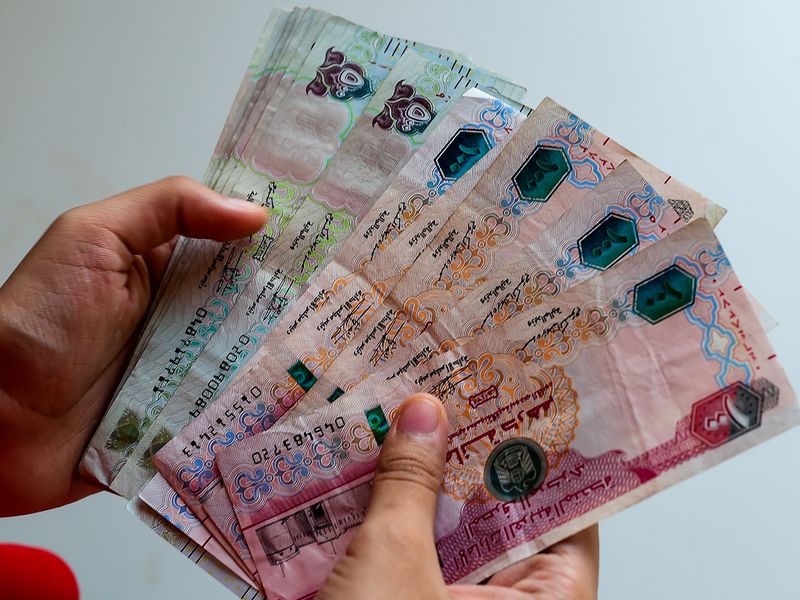
Where do I invest if I have Dh1,000 to invest?
If you’re saving for retirement or to purchase a home that’s some years away, you might look for a low-fee target-date fund with a relatively low minimum investment, typically of Dh1,000 or so.
So with this type of fund, you choose the target date. The investments in the fund are automatically adjusted over time, moving your money from riskier to safer investment as your target date gets closer.
Why is this important? When you’re just starting out, you have time. You can make riskier investments that might earn higher returns.
However, as you near your target date, especially if that’s your retirement date, you want to protect yourself from sudden losses that can derail your plans.
With that Dh1,000, you also could consider purchasing individual stock shares, which come with higher risk but can generate higher returns.
Investing in individual stocks that pay dividends is a smart strategy. You will have the option of receiving the dividends as cash pay-outs or reinvesting them in additional shares.
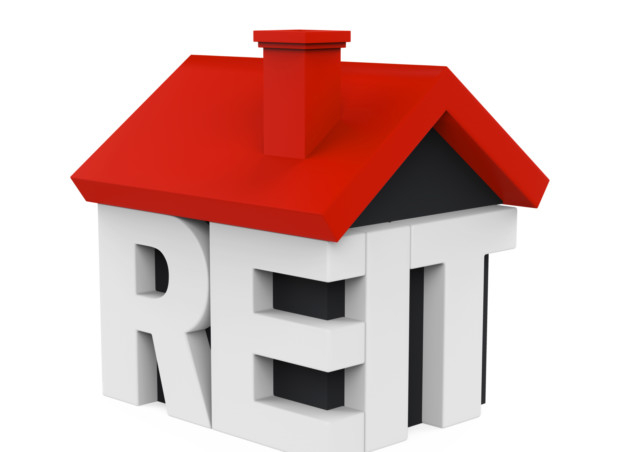
• Reinvesting dividends is an affordable option and a global favourite
One is a dividend reinvestment plan (DRIP). You buy shares of stock, and your dividends are automatically used to purchase additional shares or even fractional shares.
This is preferred by small investors because the shares are purchased at a discount without paying a sales commission to a broker. Buying a single share of a company’s stock will get you started.
Dividends might seem insignificant at first glance, but historically they have made up a significant part of the total return.
While DRIP automatically converts dividends into company's stocks in the US and in the UK, in the GCC and many emerging stock markets, investors have to take the dividends and go into the market to re-invest in the stocks themselves. However, commission charges then can impact negatively on the return.
Reinvesting dividend income is like cost averaging: where an investor systematically accumulates dividend paying stocks a few times a year. More shares are bought when the price is lower and less when it is higher.
If all dividends received were reinvested and allowed to compound over time, the hypothetical Dh10,000 investment would have grown to Dh2,459,158.
Without the reinvestment of dividends, the Dh10,000 would have grown to just Dh431,397 over the roughly time horizon based solely on price appreciation.
Similarly if you had Dh1,000, and you kept reinvesting dividends, your investment would have grown to Dh245,915 in the time horizon, and your Dh100 would have risen to about Dh24,600.
Looking at the percentage contributions of dividends to the index’s total return by decade reinforces the importance of dividends.
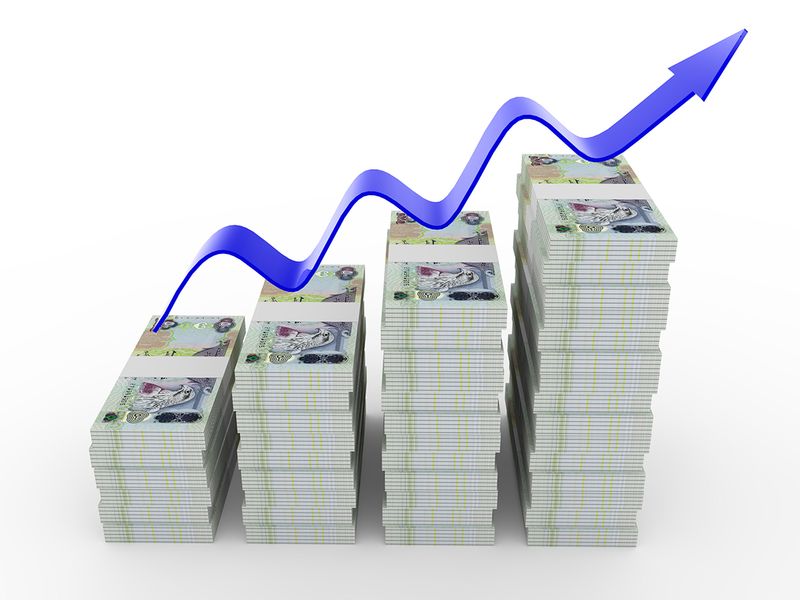
Where do I invest if I have Dh5,000 to invest?
• High-minimum/High-return funds are an option
There are mutual funds with no minimums, but there are global funds that do require a minimum initial investment of about Dh5,000 and above, that generate higher returns.
This investment level allows access to additional options, including more heavyweight mutual funds.
While some funds require a minimum investment of Dh3,000 or less, a larger sum is more common, such as the Dh5,000 for most of its funds.
Among the many fund types, consider looking first to an index fund, a type of mutual fund that tracks a specific market index and offers relatively low fees. Like ETFs, index funds are passively managed, which means a lower expense ratio, which moderates fees. What is an index fund?
The goal of an index fund is to at least match the performance of a stock market index. It also gives you broad exposure to a number of asset classes.
• Getting exposure to real estate through REITs, crowdfunding
The possibilities become broader at the Dh5,000 level, including more options for investing in real estate. While Dh5,000 isn’t enough to purchase property or even to make a down payment, it’s enough to get a stake in real estate in several other ways.
The first is to invest in a real estate investment trust (REIT). This is a corporation that owns a group of properties or mortgages that produce a continuous stream of income.
As a REIT investor, you’re entitled to a share of the income generated by the underlying properties. Compared to property funds, REITs typically distribute 80 per cent of annual income to unit holders as dividends.
Real estate crowdfunding is a second option. Many platforms set the minimum investment for gaining entry to private real estate deals at between Dh2,000 to Dh5,000.
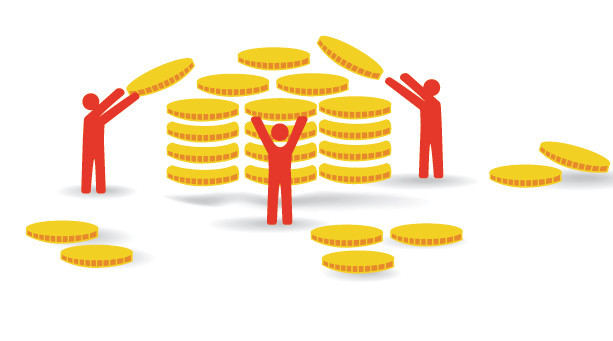
Crowdfunding offers high risk, as many new ventures fail, but also the prospect of higher earnings. Generally, annual returns fall in the 5 per cent to 8 per cent range, but analysts evaluate how it can climb to 30 per cent or more for investors who are willing to take a big risk or are simply lucky enough to back an especially profitable newcomer.
Key to smart investing on a small budget: Maximise the amount you save with time, minimise fees
The logic is simply to maximise the amount you save and minimise fees when investing smartly with your limited resources. That said, building a portfolio can also get complex as to how best to balance the risk of some investments against their potential returns.
However, in this day and age, more resources than ever are available, with options including robo-advisors, virtual assistants that can help you create a balanced portfolio at a low price, and fee-only financial advisors who do not depend on income from commissions on the products they sell you.
A popular adage among veteran investors is that most often the hardest part of investing is getting started, but the sooner you do so, the more you should make.











